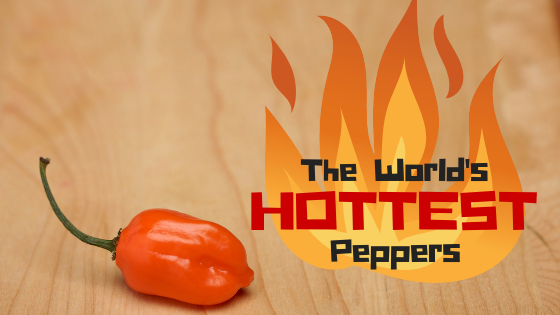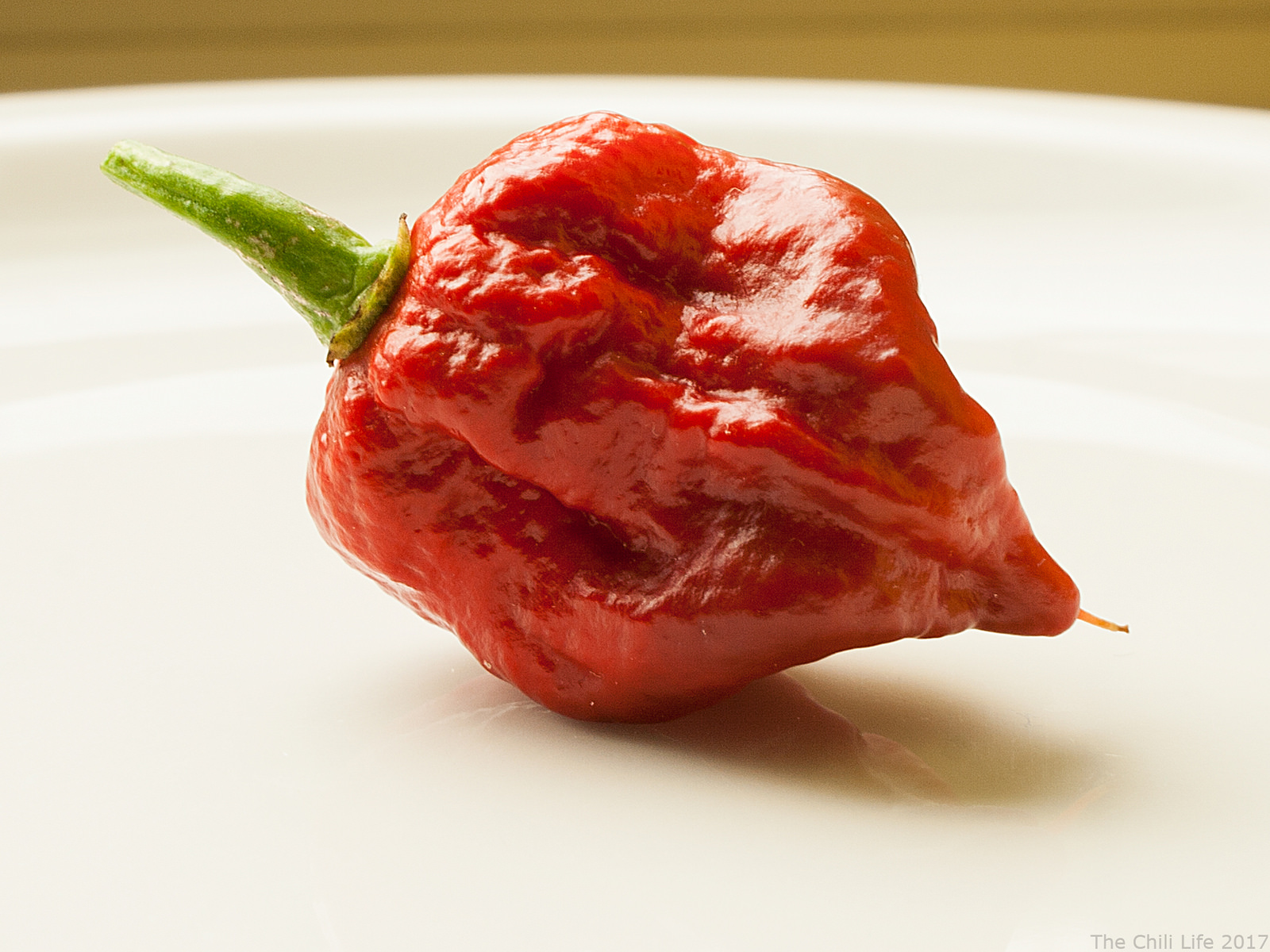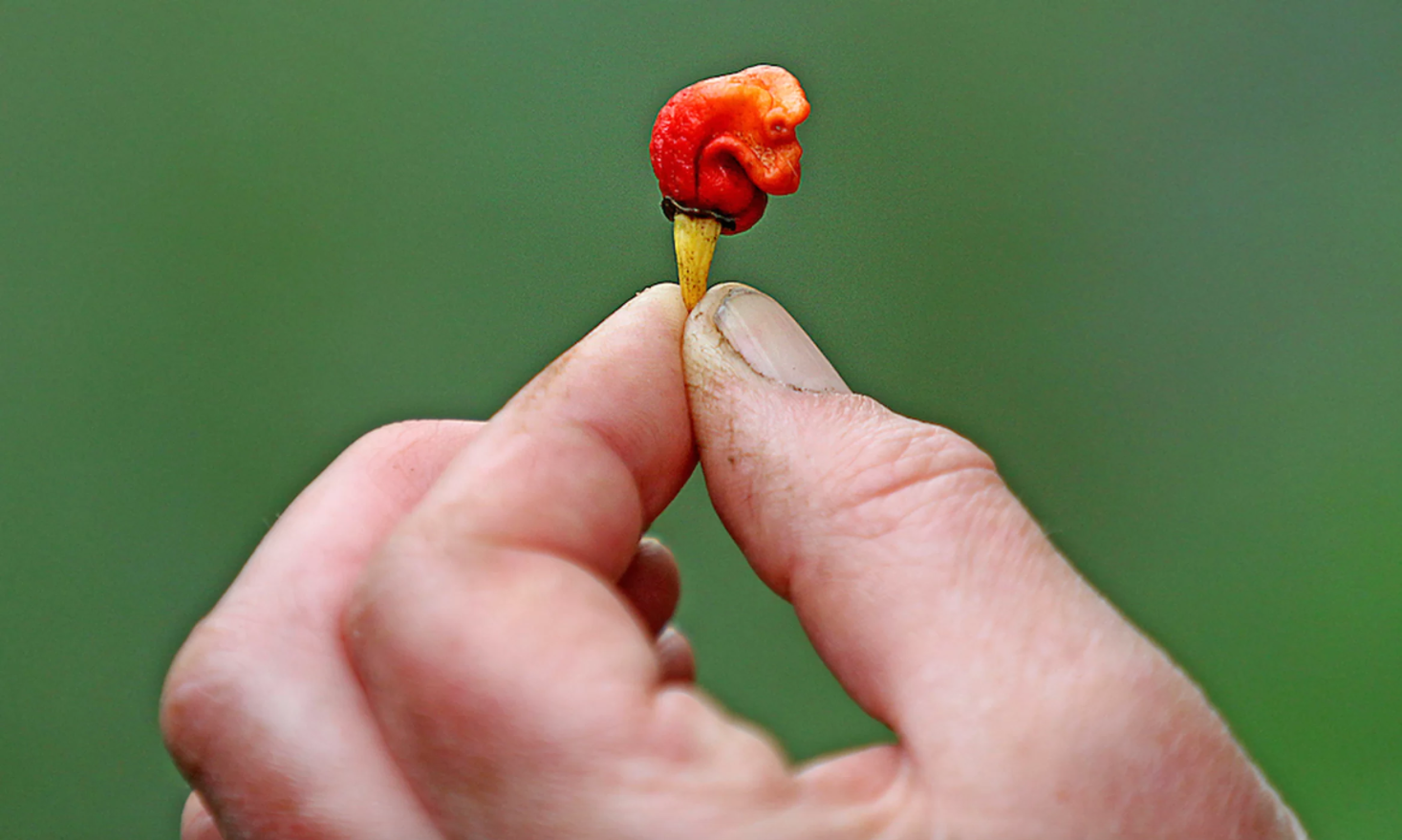
The title of “World’s Hottest Pepper” is always contested. Pepper heat can be a bit subjective and inconsistent. And it seems as soon as everyone agrees on a champion, a new hybrid emerges claiming insanely scorching heat. But one pepper has managed to hold off all comers for the past few years – The Carolina Reaper.The Carolina Reaper

The current most accurate measurement of a pepper’s hotness is called the Scoville Test. This test measures a pepper’s concentration of capsaicin, the chemical irritant that causes sensations of spiciness. The capsaicin measurement is reported in SHUs or “Scoville Heat Units.”For comparison, a bell pepper has a Scoville rating of 0. Not spicy at all. A jalapeno? About 1,000. Get warmer. Habeneros? Around 100,000. Now you’re starting to sweat. But according to the official tests done by Winthrop University for The Guinness Book, the Carolina Reaper averages an astounding 1.6 million SHUs!

Growing your own Hot Peppers
Water Puts Out FireIf you want your peppers to be fire, don’t over-water them. Reducing your watering, even to the point of stressing the plant a little, can help concentrate the fruit’s capcasin and increase the heat. Water your peppers only when leaves start to droop, especially as the fruit is starting to set.
Avoid Cross PollinationMost peppers are closely related to one another, so they can easily cross pollinate. If you have your super hot peppers planted near mild peppers, you could get some cross pollination that will make your peppers more mild. Keep your hottest peppers separate for the spiciest results.
